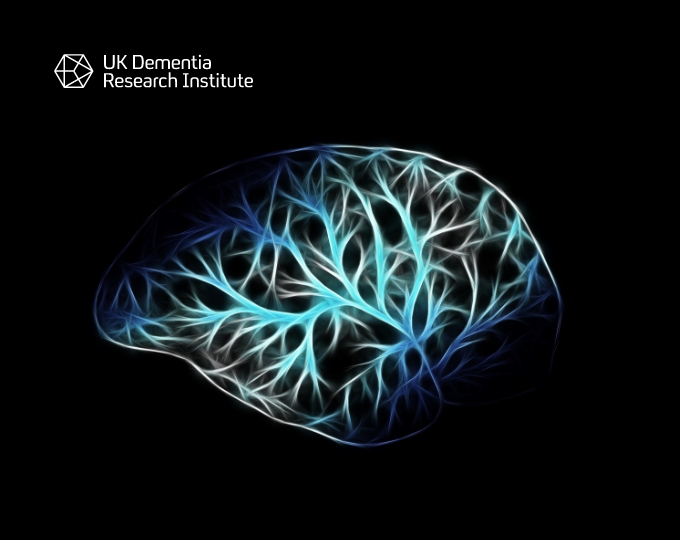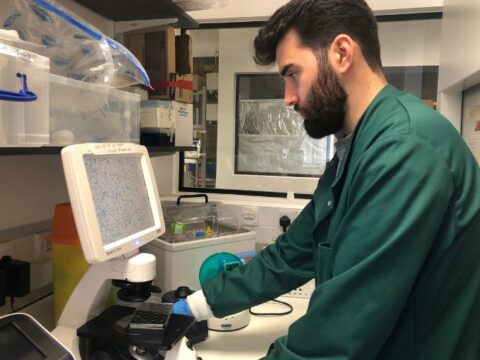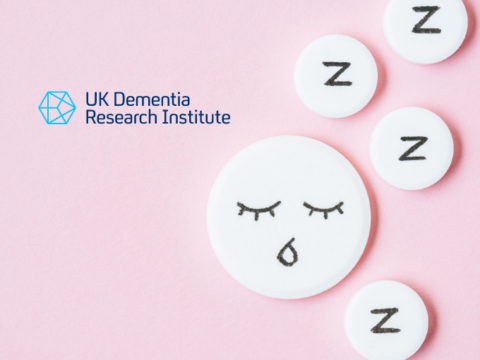
- Scientists developed a technology called temporal interference that allows for the first time the stimulation of deep brain structures without brain surgery.
- This study validates the technology in humans, showing that when people perform a memory task whilst receiving temporal interference stimulation of the hippocampus, it can improve memory accuracy.
- These results give a solid rationale to develop it into a therapy for Alzheimer’s disease, which the researchers are now testing in a clinical trial.
Researchers at the UK Dementia Research Institute have developed a new form of deep brain stimulation that does not require surgery and could provide an alternative treatment option for brain diseases such as Alzheimer’s.
The exciting new technology has been successfully trialled with 20 healthy volunteers for the first time by Dr Nir Grossman and Dr Ines Violante and the team at the UK Dementia Research Institute (UK DRI) at Imperial College London and the University of Surrey.
Known as temporal interference (TI), it works by safely delivering differing frequencies of electrical field through electrodes placed on the scalp and different parts of the head. The overlapping electrical fields enable a deep region of the brain known as the hippocampus to be targeted by electrical stimulation, without affecting the surrounding areas – a procedure that until now required brain surgery.
First author Dr Ines Violante, Senior Lecturer in Psychological Neuroscience at the University of Surrey, said:
“The ability to selectively target deep brain areas of the brain using a non-invasive approach is very exciting as it provides a tool to investigate how the human brain operates and opens possibilities for clinical applications.
The combination of non-invasive imaging and brain stimulation will help us unravel the processes that support our cognitive functions, such as memory and learning. Knowledge of these processes and how they can be altered is essential to develop better individualised strategies to treat or delay the onset of diseases.”
The research, published today (Thursday) in the journal Nature Neuroscience, and funded by the UK DRI, showed that the technology was able to focally stimulate the hippocampus and improve memory function in healthy adults. Scientists now hope it could soon be used to improve symptoms of memory loss in people living with Alzheimer’s disease and have begun trialling the technique in people with early Alzheimer’s.
The technology was first described by the team at Imperial College London in 2017 and shown to work in principle in mice. The new study shows for the first time that TI is effective at stimulating deep regions within the human brain. This has broad applications, and will allow scientists to stimulate different deep brain regions to discover their functional roles for the first time – accelerating the discovery of new therapeutic targets.
In the new study, the researchers first used post-mortem brain measurements to validate that the TI electric fields can be remotely focused in the hippocampus. They then applied the TI stimulation to healthy volunteers while they were memorising pairs of faces and names – a process heavily dependent on the hippocampus. Using an imaging technique called functional magnetic resonance imaging (fMRI) they showed that the TI stimulation selectively affected the hippocampal activity evoked by the memory task. Finally, the researchers repeated the procedure for a longer period of 30 minutes to show that the stimulation leads to improved memory accuracy.
The study is published simultaneously with a second study led by researchers in École polytechnique fédérale de Lausanne (EPFL), Switzerland which independently validated the technology. In the EPFL study, the researchers used the TI technology to focally stimulate a different deep brain area called the striatum and improve motor memory function in healthy volunteers.
Next, the researchers at the UK DRI at Imperial College London are trialling the technology in people in the early stages of Alzheimer’s disease. In the clinical trial, funded by the Alzheimer’s Association and the Bill Gates Foundation, participants receive multiple sessions of non-invasive TI brain stimulation, to test whether it could be effective at restoring activity in affected areas of the brain and improving symptoms of memory loss1.
Study leader Dr Nir Grossman, Group Leader at the UK Dementia Research Institute at Imperial College London, said:
“Until now, if we wanted to electrically stimulate structures deep inside the brain, we needed to surgically implant electrodes into the brain, which of course carries risk for the patient, and can lead to complications.With our new technique we have shown for the first time, that it is possible to remotely stimulate specific regions deep within the human brain without the need for surgery. This opens up an entirely new avenue of treatment for brain diseases like Alzheimer’s which affect deep brain structures.
We hope it will help to scale up the availability of deep brain stimulation therapies by drastically reducing cost and risk. We are now testing whether repeated treatment with the stimulation over the course of a number of days could benefit people in the early stages of Alzheimer’s. We hope that this will restore normal brain activity in the affected areas, which could improve symptoms of memory impairment.”
Notes to editors
- Participants for the clinical trial were recruited through the NIHR memory centre and Imperial College Healthcare NHS Trust. The work was supported in part by the NIHR Imperial BRC and a BBSRC award to Dr Violante.
- For more information about the Alzheimer’s disease trial, visit https://ukdri.ac.uk/clinical-trial-electrical-brain-stimulation
About the UK Dementia Research Institute
The national UK Dementia Research Institute (UK DRI) is the single biggest investment in dementia research in the UK. Established in 2017 by its founding funders, the Medical Research Council, Alzheimer’s Society and Alzheimer’s Research UK, the multi-million-pound Institute is hosted across six leading UK universities: University of Cambridge, Cardiff University, University of Edinburgh, Imperial College London and King’s College London, with its central hub at UCL. The UK DRI works on ways to prevent, treat and care for people with all types of dementia, and ways to keep the brain healthy. www.ukdri.ac.uk.
About Imperial College London
Imperial College London is a global top ten university with a world-class reputation. The College’s 22,000 students and 8,000 staff are working to solve the biggest challenges in science, medicine, engineering and business.
About the University of Surrey
The University of Surrey is a research-intensive university, conducting world-leading research, delivering excellent innovation in teaching and producing highly employable graduates. Areas of research focus include sustainability, connecting society and technology to equip humanity to live better, more sustainable lives; artificial intelligence, with research steering these new technologies so they remain people-centred in the way they operate, develop and are governed; and pushing the boundaries of our understanding of the ways human and animal health overlap, interact and share common problems and solutions – within a ‘One Health, One Medicine’ research approach.

 Print This Post
Print This Post




